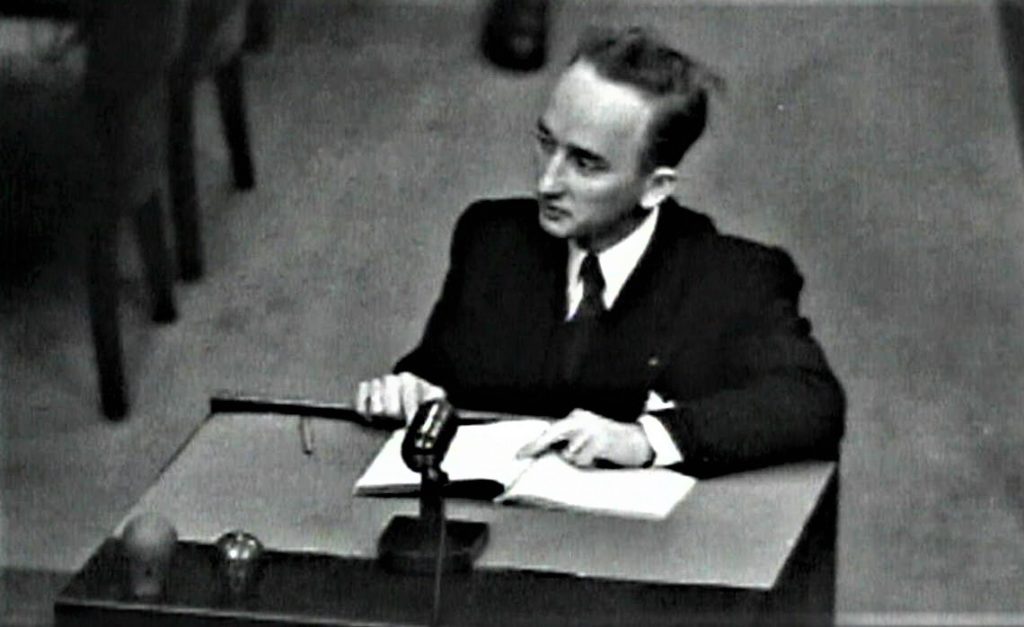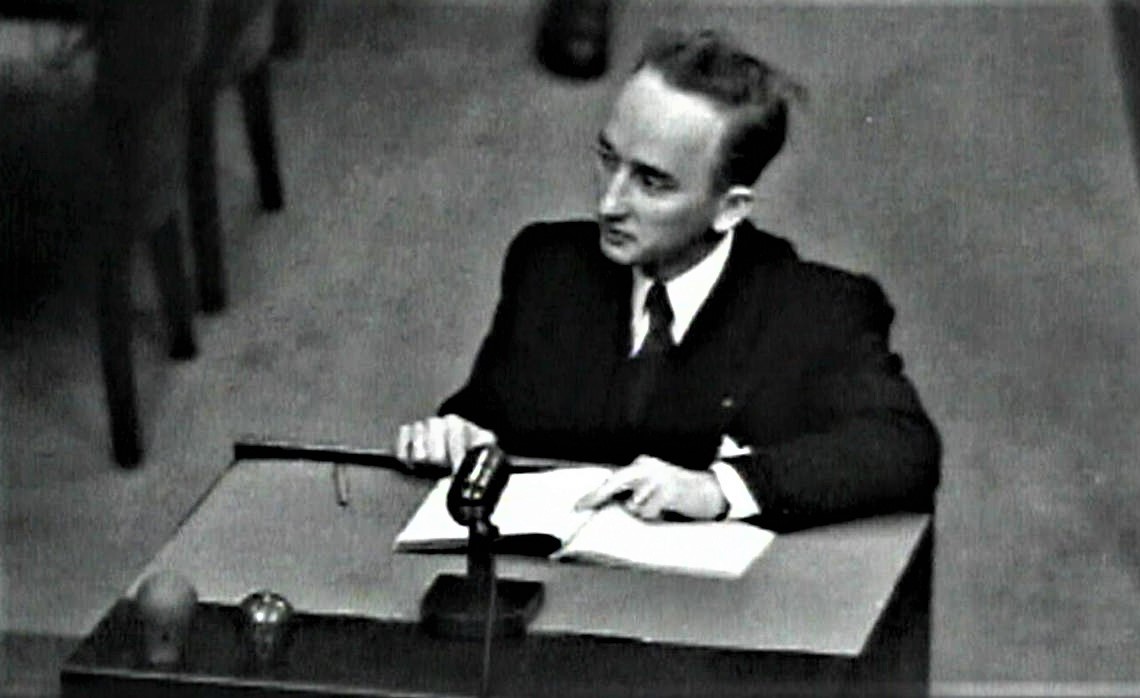“If it’s naïve to want peace instead of war, let ‘em make sure they say, I’m naïve. Because I want peace instead of war.” — Benjamin Ferencz

Right now, I can’t think of a more important time in the country and the world where we need heroes , ethical heroes, men and women of principle.
Ben Ferencz is one of them.
Ferencz was the chief prosecutor of 22 Einsatzgruppen commanders at Nuremberg. The Einsatzgruppen were paramilitary death squads that were responsible for mass killings in Nazi Germany.
60 Minutes journalist, Leslie Stahl first interviewed Ferencz when he was a youngish 91 years old. (He was 27 years old when he prosecuted the Nazi commanders.) Today, Ferencz is 101 and still fighting for humanity.
“Had you prosecuted trials before?” Stahl asks.
“Never in my life. I don’t—recall if I’d ever been in a courtroom actually,” Ferencz said.
After finishing Harvard, Ferencz “enlisted as a private in the Army. Part of an artillery battalion, he landed on the beach at Normandy and fought in the Battle of the Bulge. … because of his legal training, he was transferred to a brand-new unit in General Patton’s Third Army, created to investigate war crimes. As U.S. forces liberated concentration camps, his job was to rush in and gather evidence. Ferencz told us he is still haunted by the things he saw. And the stories he heard in those camps.”
Ferencz was tasked “to direct a team of researchers in Berlin, one of whom found a cache of top-secret documents in the ruins of the German foreign ministry.”
“He gave me a bunch of binders, four binders,” Ferencz remembers. “And these were daily reports from the Eastern Front– which unit entered which town, how many people they killed. It was classified, so many Jews, so many gypsies, so many others.”
Ferencz had found reports that were sent back to Nazi headquarters by the Einsatzgruppen. “Their job,” Stahl reports, “had been to follow the German army as it invaded the Soviet Union in 1941, and kill Communists, Gypsies and especially Jews.”
“That was their assignment,” Ferencz said, “come in behind the troop, round up the Jews, kill ’em all.”
Ferencz started adding up the numbers.
“When I reached over a million people murdered that way, over a million people, that’s more people than you’ve ever seen in your life. I got on the next plane, flew from Berlin down to Nuremberg, and I said to Taylor, ‘General, we’ve gotta put on a new trial,’” Ferencz explained to Stahl.
Taylor couldn’t spend the time or resources to start another trial and Ferencz said, “Look. I’ve got here mass murder, mass murder on an unparalleled scale.” And he said, ‘Can you do this in addition to your other work?’ And I said, ‘Sure.’ He said, ‘OK. So you do it.’”
“And that’s how 27-year-old Benjamin Ferencz became the chief prosecutor,” Stahl says.
At the beginning of the trial, the judge would ask each of the defendants how they would plead. “They would all say, Nicht schuldig, not guilty.” Ferencz said, but he had the documents to prove them guilty.
“What turns a man into a savage beast like that?” Stahl asks.
“He’s not a savage,” Ferencz says. “He’s an intelligent, patriotic human being.”
“He’s a savage when he does murder, though.”
“No. He’s a patriotic human being acting in the interest of his country, in his mind.
“You don’t think they turn into savages even for the act?”
“Do you think the man who dropped the nuclear bomb on Hiroshima was a savage?” Ferencz asks. “Now I will tell you something very profound, which I have learned after many years. War makes murderers out of otherwise decent people. All wars, and all decent people.”
Today, Ferencz remains optimistic despite crimes against humanity.
“I see the progress. The progress has been remarkable. Look at the emancipation of woman in my lifetime. You’re sitting here as a female. Look what’s happened to the same-sex marriages. To tell somebody a man can become a woman, a woman can become a man, and a man can marry a man, they would have said, ‘You’re crazy.’ But it’s a reality today. So, the world is changing. And you shouldn’t, you know, be despairing because it’s never happened before. Nothing new ever happened before.”
Benjamin Ferencz has been nominated for a Nobel Peace Prize.
Heroes like Ferencz are in short supply. We need a few thousand more.
Comments











